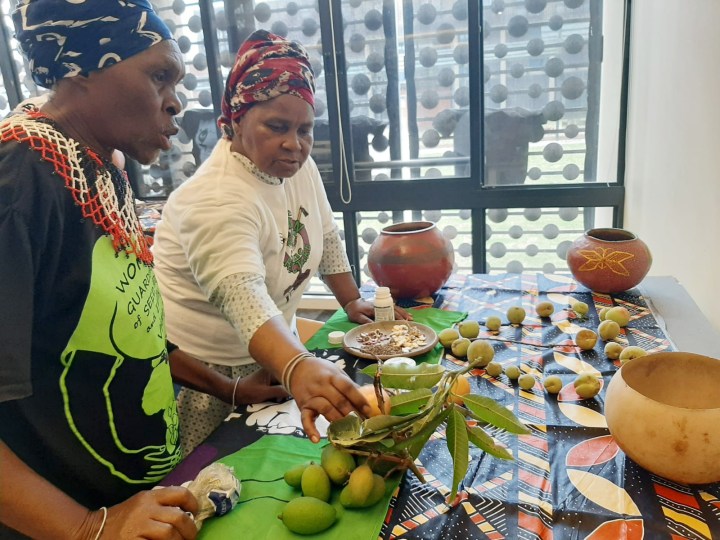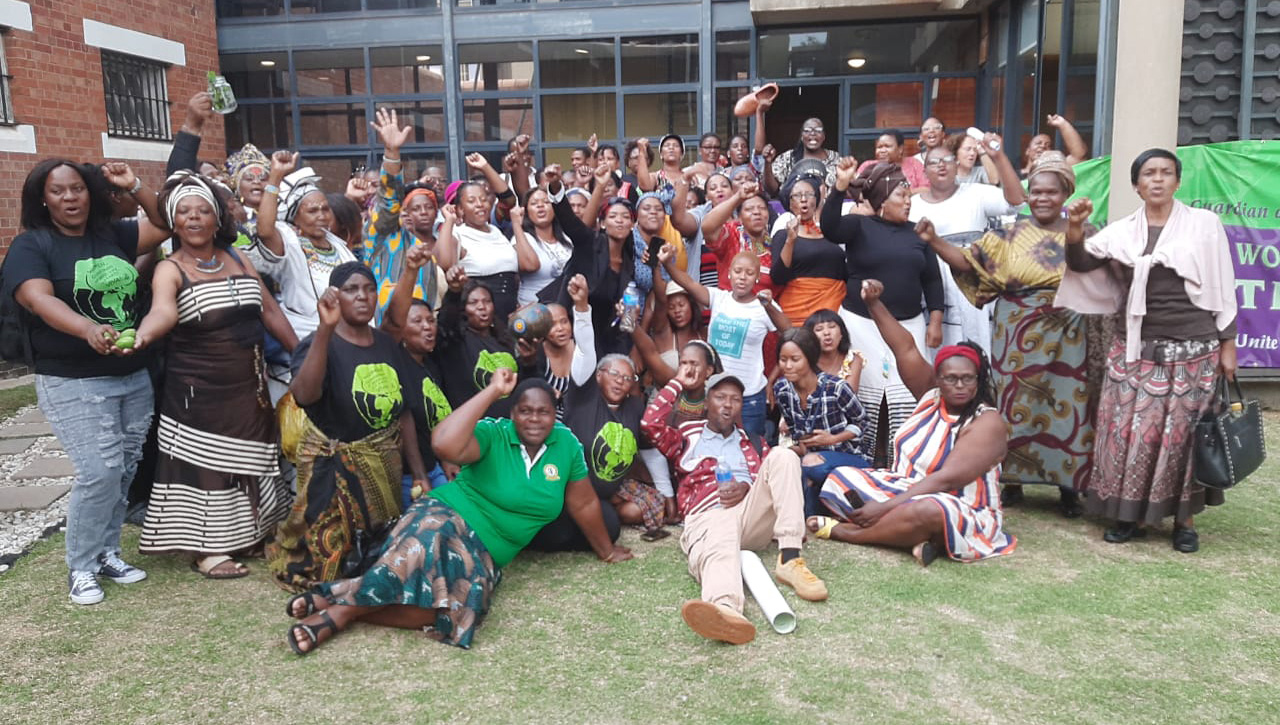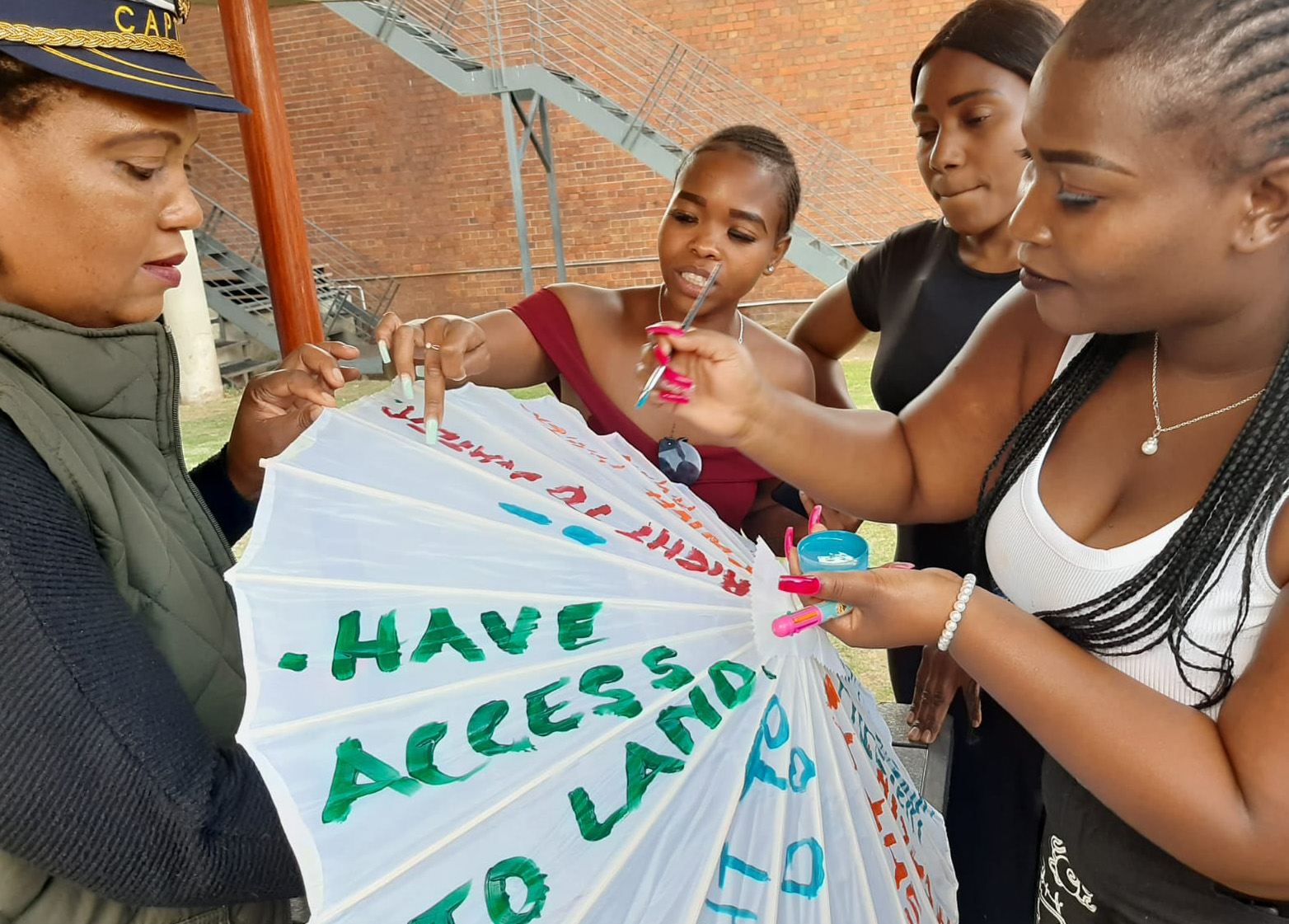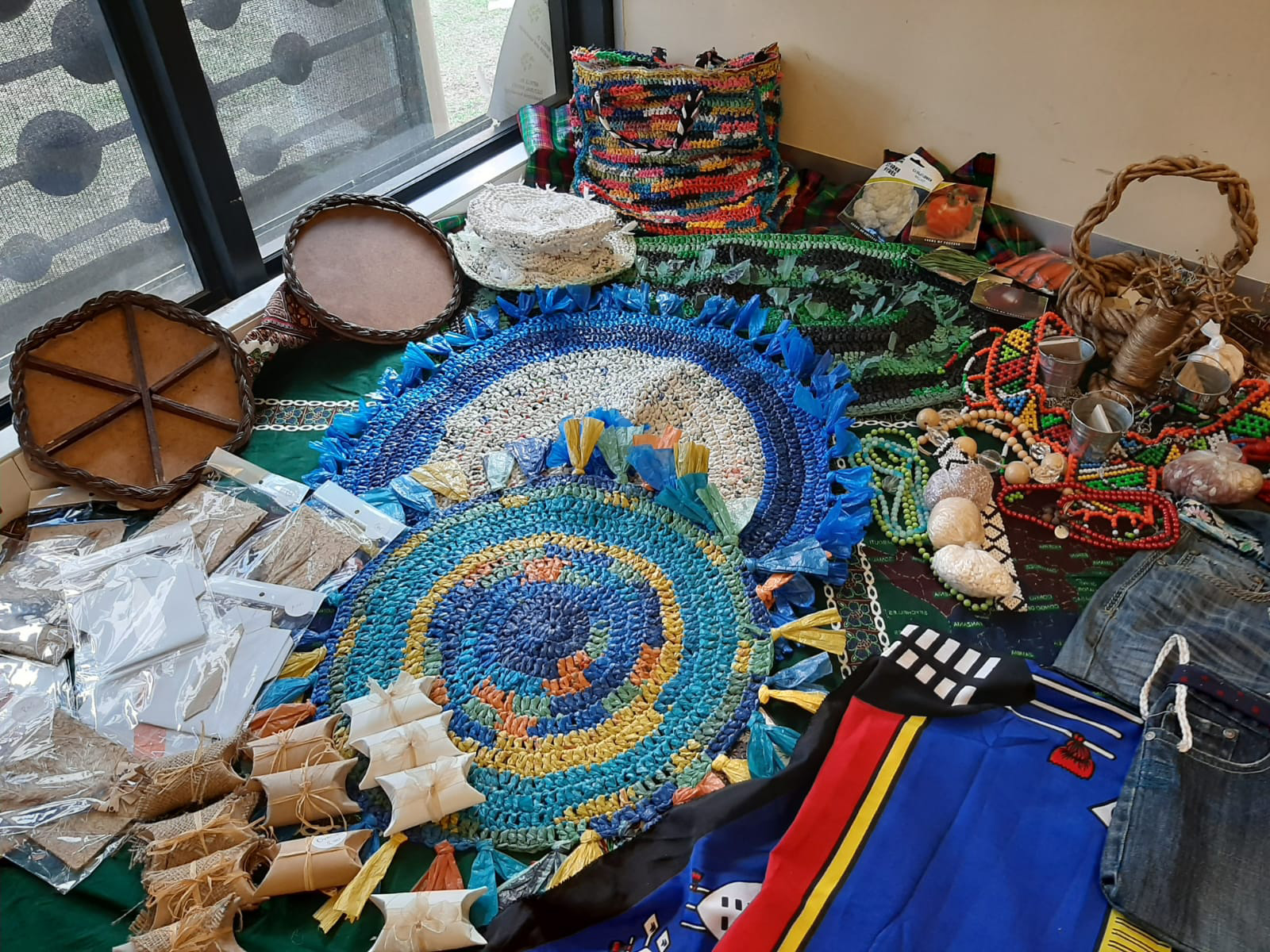RURAL ASSEMBLY
Women farmers on the frontlines of the climate crisis demand recognition and support

Small-scale farmers from across the southern African region gathered to share stories of how the climate crisis has affected their livelihoods in rural areas. Some told of how they had survived five cyclones over a few years as small-scale farmers, while others described how they managed to create a livelihood by repurposing litter.
The Rural Women’s Assembly met on Thursday at Constitutional Hill against the backdrop of global climate change talks COP27 in Sharm-el-Sheikh, Egypt, gathering in numbers to voice their grievances as the climate crisis affects their lives in rural areas across southern Africa.
Mercia Andrews, Rural Women’s Assembly regional coordinator, told Daily Maverick that participating in the technical talks and side events at COP was not the aim of the organisation.

The Rural Women’s Assembly, from across southern Africa, at Constitution Hill. (Photo: Rural Women’s Assembly)
“Our strength is in making visible the impact of climate change; the real impact of climate change on people’s lives. Climate change is not just a COP issue that is negotiated, it’s about how women and poor communities are impacted… if you lose all your assets in a cyclone, you are buggered!”
Organised by the Southern African Rural Women’s Assembly, the meeting aimed to bring together women in agriculture from across the region and give them a platform to air their grievances in order to engage officials with a united voice.
The event exposed the realities of small-scale women farmers in southern Africa; farmers who had lived through five cyclones, women who created bags and mats from recycled plastic materials and women who learnt to move away from coal as an energy source to biogas.
Cyclone Idai
“My land is taken, who will restore it?” asked Nomatter Mapungwana from Chimanimani District in eastern Zimbabwe, which was hit by Cyclone Idai. The eastern town, which is 94% rural, was struck by the cyclone in the form of torrential rains that caused flooding and damaged houses, roads and crops.
“The cyclones are caused by climate change. We cannot keep on crying because the situation on the ground is that we do not have seeds and we do not have clean water,” said Mapungwana.
“Let’s engage polluters… developed countries need to engage and end what they have started… Let polluters pay!”

Small-scale farmers from rural areas place on umbrellas their demands and grievances in the face of the climate crisis at the Southern African Rural Women’s Assembly held at Constitution Hill. (Photo: Rural Women’s Assembly)
Among the demands and calls for justice was the call for seed banks of indigenous crops that have been lost due to devastating climate crisis effects. Some of the women also spoke of how the climate crisis events disproportionately affected women by indirectly increasing gender-based violence while also directly affecting rural women’s financing.
According to the African Development Bank, women are most reliant on subsistence agriculture and are also predominant in contributing to the production of economic crops, agricultural markets and retail trade, as well as nature tourism.
Livelihoods
With 70% of sub-Saharan Africans relying on subsistence rain-fed agriculture, changes to the climate are detrimental to livelihoods across the continent. Of the women that spoke, most raised an alarm that in the past five years, they had endured some of the worst effects of the climate crisis.
Veronica Zungu, a small-scale farmer from Chongwe, Zambia, who farms maize, groundnuts, cassava, and free-range chickens, told Daily Maverick that the climate crisis had been detrimental to her efforts to provide sustenance.
“Pigs are now lost because of climate change,” said Zungu. “Long time ago, we could produce our own food, but now we are depending on buying and we don’t have money. Our streams and boreholes have dried up, and we only have a few boreholes in our community. We [practice] rain-fed agriculture… the rain is gone. [The climate crisis] is really affecting us…Women and young girls are now becoming [sex workers] because of a shortage of food.”

Bags, mats and accessories made from recycled materials such as leather and plastic by rural women. (Photo: Rural Women’s Assembly)
Zungu has been a farmer for 20 years. She says that in the past five years she has stopped farming maize and cassava, both of which are considered resilient crops. She said because of the climate crisis, cassava had softened once ready for harvesting, making for an inedible crop.
Visit Daily Maverick’s home page for more news, analysis and investigations
Africans have repeatedly voiced what the assembly has called a “climate apartheid”; paying the highest cost through climate disasters for a climate crisis the continent contributed very little to, with less than 4% of global greenhouse gas emissions.
Some of the ways the women said they had been affected by the climate crisis in the region have included late and torrential rains that have delayed planting seasons, loss of seeds and livestock due to drought, malnutrition, loss of income and increased gender-based violence.
Norah Mlondobozi from Limpopo said late rains and high temperatures resulted in what was planted not yielding much and produce not lasting long.
“Women could not feed their families with the crop [planted during the late rains]. And in the shop, prices are too high and women cannot afford [food] and this is creating a dependency on grocery stores,” said Nora. “Women lost a lot of seeds and livestock, some are no longer farming.”
Southern Africa’s interior is warming at about twice the global average rate, the Centre for Environmental Rights says, making it highly vulnerable to the effects of the climate crisis, with devastating consequences. The continent and region’s high dependence on environment-based activity such as agriculture makes the climate crisis a major threat to livelihoods.
Said Mlondobozi: “There cannot be climate justice without gender justice!”
The gathering ended with the women singing a rendition of No Woman No Cry, peppered with chants of, “Zabalaza zabalaza (struggle struggle)!” DM/OBP





















 Become an Insider
Become an Insider
Comments - Please login in order to comment.